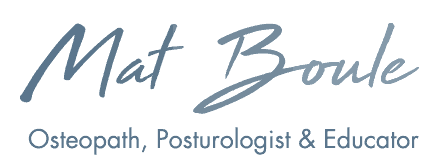Of Balance and Chronic Pain
It’s now been a few years that I have been advocating for improving balance in subjects that suffer from chronic pain. Neurologically and mechanically speaking, there are a multitude of reasons why this makes sense.
This author has not written his bio yet.
But we are proud to say that Mat Boulé contributed 226 entries already.
It’s now been a few years that I have been advocating for improving balance in subjects that suffer from chronic pain. Neurologically and mechanically speaking, there are a multitude of reasons why this makes sense.
I was just having a discussion with a friend of mine a few days ago and we concluded that, at this point in time, no one actually gets handedness. We don’t know so much what makes someone right handed or left handed. We also don’t know why 90% of the population happens to be right […]
Think quickly! What could be an outstanding way to diminish negative emotions such as anxiety and sadness as well as daily stresses?
But how could it be? What are the possible links?
For years now, posturologists and functional neurologists have been speaking of just how early movement literacy actually develops. In creating awareness for this fact, they emphasize that optimal rehabilitation or performance-enhancing programs take into account the movement patterns that are learned early on in life.
Writing has shaped humanity. Only, writing is endangered. What can be the consequences? A report recently published in sympa-sympa.com states important skills that may be lost if you give up writing.
Worldwide, ADHD is seen in approximately 5.29% in the paediatric population and 3.4 % in adults. The disorder is more common in boys than girls.
If it used to be thought that the cerebellum was made for movement and that the frontal cortex was made for cognitive functions, it is more and more obvious that it is not so black and white.
Just this weekend, I was fortunate to attend quite a popular course held by Greg Lehman. Reconciling Biomechanics with pain science is Greg’s attempt to paint somewhat of a clearer picture as to how can we do the best we can with our clients when it comes to utilizing the very latest in research relating […]
How is it that top athletes achieve top performances? Psychologists and neuroscientists are speaking of a phenomenon called the “quiet eye”. The “quiet eye” would be a kind of enhanced visual perception that allows the athlete to eliminate any distractions as they plan their next move.
Mat Boulé, Osteopath, Posturologist, Educator
(514) 880-5424
Le Hub 288 (Mon Tues):
288 Bd Curé-Labelle, Laval, QC H7P 0B2
Adrenaline Performance (Wed Fri):
8158 Chemin Devonshire, Mont-Royal, QC H4P 2K3
Athletik One (Thu):
2068 Trans Canada Route, Dorval, Quebec H9P 2N4
Centre Umanité (Sat):
500 Boul des Seigneurs #201, Terrebonne, QC J6W 1T3
